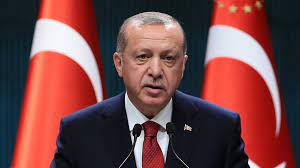Climate
China climate envoy says phasing out fossil fuels ‘unrealistic’
According to China’s top climate official, fossil fuels, which contribute to global warming, must continue to play an important role in ensuring the world’s energy security.
Xie Zhenhua, China’s special climate envoy, responded to ambassadors’ remarks at a discussion in Beijing on Thursday before the November COP28 climate meeting in Dubai. China consumes more coal and oil than any other country. Xie’s speech was recorded on camera, and Reuters obtained its transcript.
A United Nations-led global “stocktake” found that 20 gigatons of more carbon dioxide reductions would be needed in this decade alone to keep temperatures from crossing the critical threshold of 1.5 degrees Celsius, increasing the pressure on countries to make more ambitious pledges to combat global warming.
At the COP28 climate meeting, the stocktake will be front and center, as activists hope it will generate the political will to establish explicit targets to halt coal and oil consumption.
On the other hand, Xie said that the world must continue to rely on fossil fuels to secure economic growth because renewable energy is unreliable, and crucial technologies, such as energy storage, are still in their infancy.
Xie, China’s representative at COP28, stated that entirely phasing out fossil fuel energy is unfeasible.
China pushed for a rewording of the final accord at the 2021 climate negotiations in Glasgow from “phasing out” to “phasing down” fossil fuels. Abatement technologies, including carbon capture and storage, have China’s backing for increased deployment.
While Xie stated China was open to creating a global renewable energy target, he clarified that stopping fossil fuel use was not on the table at COP28.
A $100 billion annual fund to assist developing nations in adapting to climate change will soon be made accessible, he said, adding that this was “only a drop in the bucket.” His U.S. colleague, John Kerry, guaranteed this to him.
After a break caused by U.S. Congresswoman Nancy Pelosi’s travel to the self-governing island of Taiwan, which China claims as its own, top-level climate negotiations between China and the United States resumed in July.
China has dismissed the United States attempts to treat climate change as a diplomatic “oasis” that can be divorced from the broader geopolitical issues between the two sides, especially in light of the United States’ continued trade restrictions against Chinese solar panels.
Xie warned that countries should not “politicize” collaboration in new energy since it could increase the price of solar panels by 20–25% and slow the energy transition.
As for the European Union’s proposed Carbon Border Adjustment Mechanism, which would add carbon duties to imports from China and elsewhere, he underlined China’s opposition to the plan.
Climate
Australian Weather Bureau declares El Nino event in the country.
The Australian Bureau of Meteorology has formally announced the start of an El Nio event in the nation, a significant climatic development. This news could result in droughts, heatwaves, and changes to the country’s weather patterns, among other serious effects. In this article, we examine the significance of the El Nio event, its predicted effects on Australia, and steps that might be taken to deal with the difficulties it poses.
The Pacific Ocean’s sea surface temperatures rise during El Nio, a naturally occurring climate event. It has the power to affect global weather patterns.
The Australian Bureau of Meteorology’s announcement of an El Nio event serves as a meteorological alert, warning the public, decision-makers, and pertinent authorities of possible weather disruptions.
Effects to be expected include below-average rainfall, higher temperatures, and a higher danger of bushfires, droughts, and heatwaves in Australia during an El Nio event.
Australian impact anticipated
- Drought Situations: El Nio events frequently cause decreased rainfall, which causes drought situations. Agriculture and water resources may suffer greatly as a result of this.
- Bushfire Risk: The combination of higher temperatures and dry conditions increases the risk of bushfires, endangering both rural and urban communities.
- Heatwaves: More frequent and longer heatwaves, which can harm infrastructure and human health, are expected in Australia.
Reducing the Impacts
- Water management: To lessen the effect on agriculture and ensure water supply, effective water management techniques will be essential.
- Fire Preparedness: To combat bushfires, authorities and communities must improve their preparedness and response systems.
- Health Measures: Public health measures should be implemented to address the dangers associated with heat waves and other extreme weather events.
The Australian Bureau of Meteorology’s announcement of an El Nio event serves as a harsh reminder of the unpredictability of weather patterns and the value of being prepared. Australia must adopt proactive measures to prepare for probable droughts, heatwaves, and bushfires to lessen their effects on its people, ecology, and economy. To address the problems caused by El Nio, adequate planning, resource management, and public education are necessary. Although the weather phenomenon is out of human control, Australia’s response and fortitude in the face of hardship are crucial to ensuring the country’s future.
-

 Geopolitics & Foreign Policy10 months ago
Geopolitics & Foreign Policy10 months agoNorth Korea’s Kim orders military to accelerate war preparations
-

 Geopolitics & Foreign Policy10 months ago
Geopolitics & Foreign Policy10 months agoTurkey to reinforce military bases in N.Iraq after 12 soldiers killed
-

 Geopolitics & Foreign Policy10 months ago
Geopolitics & Foreign Policy10 months agoA Russian plane lands on a frozen river by mistake.
-

 Geopolitics & Foreign Policy10 months ago
Geopolitics & Foreign Policy10 months agoUS and UK forces repel the ‘largest attack’ by Houthis in the Red Sea.
-

 Geopolitics & Foreign Policy10 months ago
Geopolitics & Foreign Policy10 months agoTrump meets Teamsters chief as union weighs the presidential race.
-

 Geopolitics & Foreign Policy10 months ago
Geopolitics & Foreign Policy10 months agoThe Islamic State claims responsibility for the deadly Iran attack, and Tehran vows revenge.
-

 Political Ideologies10 months ago
Political Ideologies10 months agoNATO pledges further central military and economic aid to Ukraine
-

 Geopolitics & Foreign Policy10 months ago
Geopolitics & Foreign Policy10 months agoRomania, Bulgaria agree partial Schengen entry with Austria – ministry














